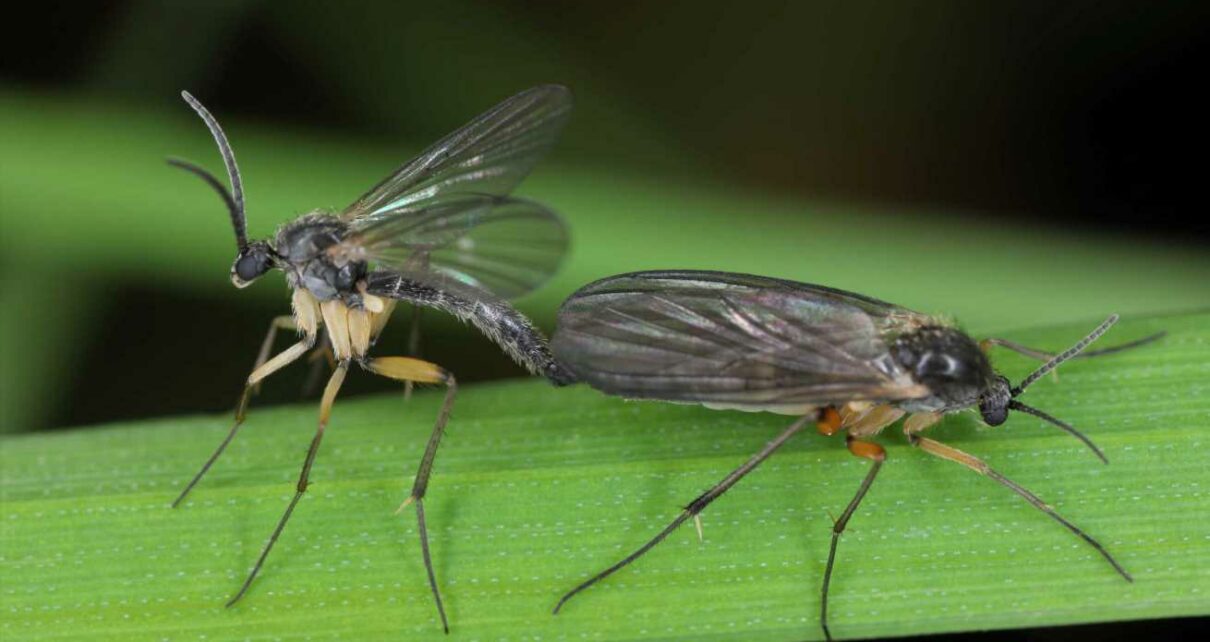SUMMERTIME means flinging open our windows and doors as we enjoy the warmer weather.
But this means critters can creep into your home – and you may see an increase in little black flies.

What are tiny black thin flies?
Tiny black flies zapping around your home can be very annoying.
The critters can often be found in fruit bowls, around house plants and in your sink.
Flies buzzing near your fruit are aptly named fruit flies.
These insects are drawn to over-ripe fruit as well as fermenting matter in sinks, cleaning equipment, and kitchen bins.
Read more on keeping bugs away

Garden fans are rushing to Home Bargains for a £3.99 essential & it’ll stop bugs

I tried a viral TikTok hack to keep the bugs away while I’m tanning in my yard
If it's not a fruit fly you're seeing, the black flies could be drain flies – also known as moth flies.
These look a little like moths and are attracted to water.
You will find these near drains and sinks.
If the tiny flies in your homes are attracted to your plants they will be fungus gnats, also known as sciarid flies.
Most read in Fabulous

I gave my hubby’s leather sofa a glow up but trolls say he should divorce me

People are just realising what crabsticks are made from and they're grossed out

Woman shows 70p shoes she found at TK Maxx… but people point out a major error

Shoppers are rushing to Home Bargains to nab a £1.99 that'll keep you cool
They just love your plant's compost.
Other critters which could be the little black flies in your home are the weirdly named no see ums.
These flying insects are incredibly difficult to spot – hence the name – but can give you a nip.
They are more commonly known as biting midges and are so small they can often get through an insect door screen.
Midges come from the same family as mosquitoes – and no one wants mozzies in their home.
You can normally tell if the flying bug in your house is a mosquito by the distinctive buzz it makes.
Are tiny black flies harmful?
If you're bitten by a tiny black fly it can often be itchy, red and the bite may even swell up.
The areas where you're most likely to be bitten are:
- Head
- Neck
- Forearms
- Face
- Legs
- Feet
It is unlikely that infectious diseases are passed on but some people do have a reaction and insects can cause serious illnesses.
The NHS states: "Insect bites or stings are not usually serious and get better in a few days.
"But sometimes they can become infected or cause a serious allergic reaction."
Wash the area with soap and water – and DON'T scratch.
You can always visit a pharmacist if you are worried and they can advise you.
If any symptoms continue or get worse over time then it's time to pay a visit to your GP or call 111.
How do I get rid of little black flies?
You can try making a black fly trap, the most popular being a vinegar trap.
Place a few teaspoons of apple cider vinegar or white vinegar, a few drops of dish washing liquid and a table spoon of sugar in a bowl and stir.
Place the bowl in the area where the black flies are prevalent.
This will attract the flies and drown them.
Other hacks to keep the bugs at bay include using lemon as flies are revolted by citrus.
Try bleaching your drains if you find them in your kitchen or bathroom.
Pour down the bleach until there are no black flies near the drain.
You can also try making a candle trap by placing the candle in a holder partially filled with water.
Light the candle and turn off the lights.
The flies will be attracted to the flame but will be burned or fall into the water and drown.
You could also install an electric insect killer.
They kill flies with an electric charge when they fly into the device.
These are very effective in your garden.
Alternatively, you could fork out the cash and call a pest control company which may cost more than most methods.
It's always good to try preventative methods first – for example, water plants less as flies need damp compost to survive, keep waste to a minimum and empty bins, and store fruit in the fridge or suitable containers.
Insect screens on open doors and windows can prevent some – but not all – entering your home.
And it's best to make sure that cracks are covered up.
Source: Read Full Article

